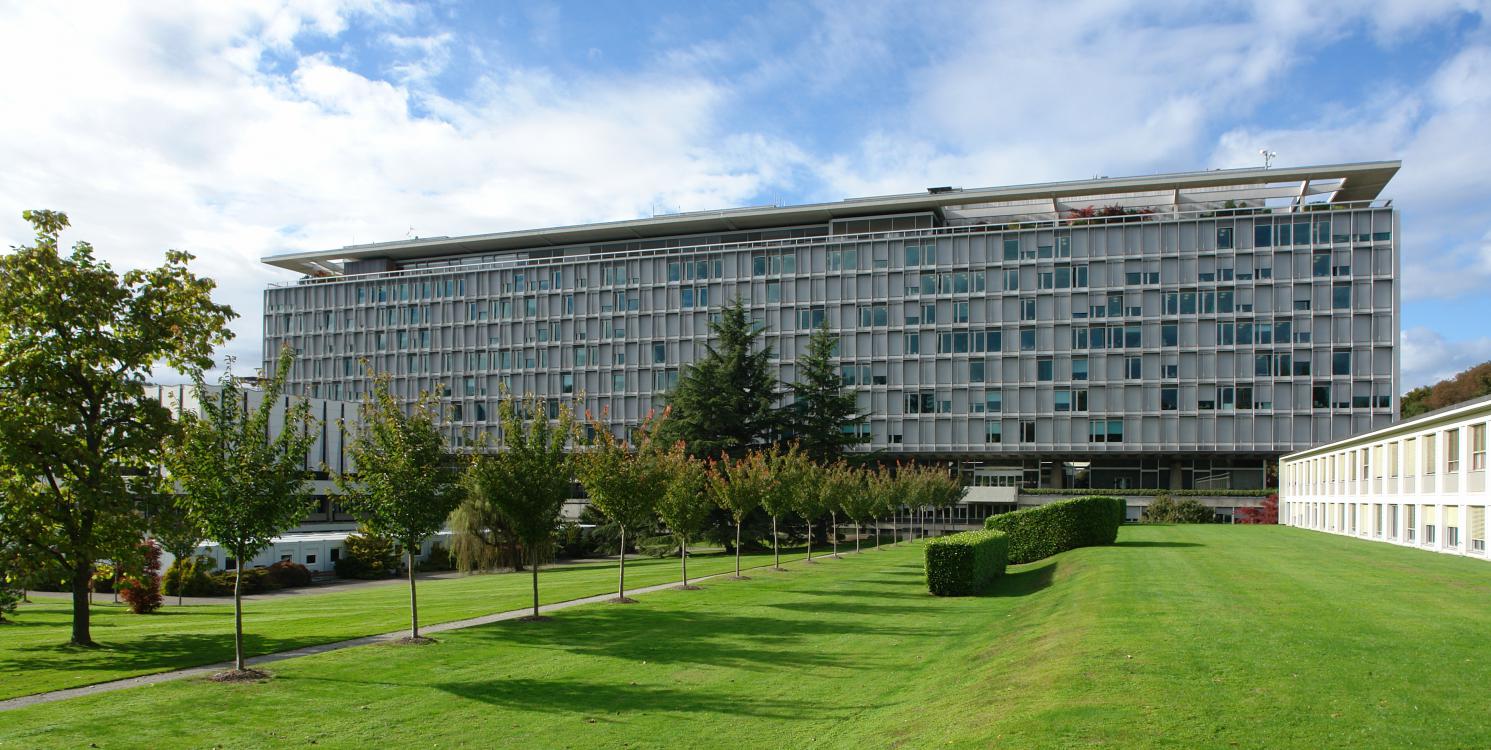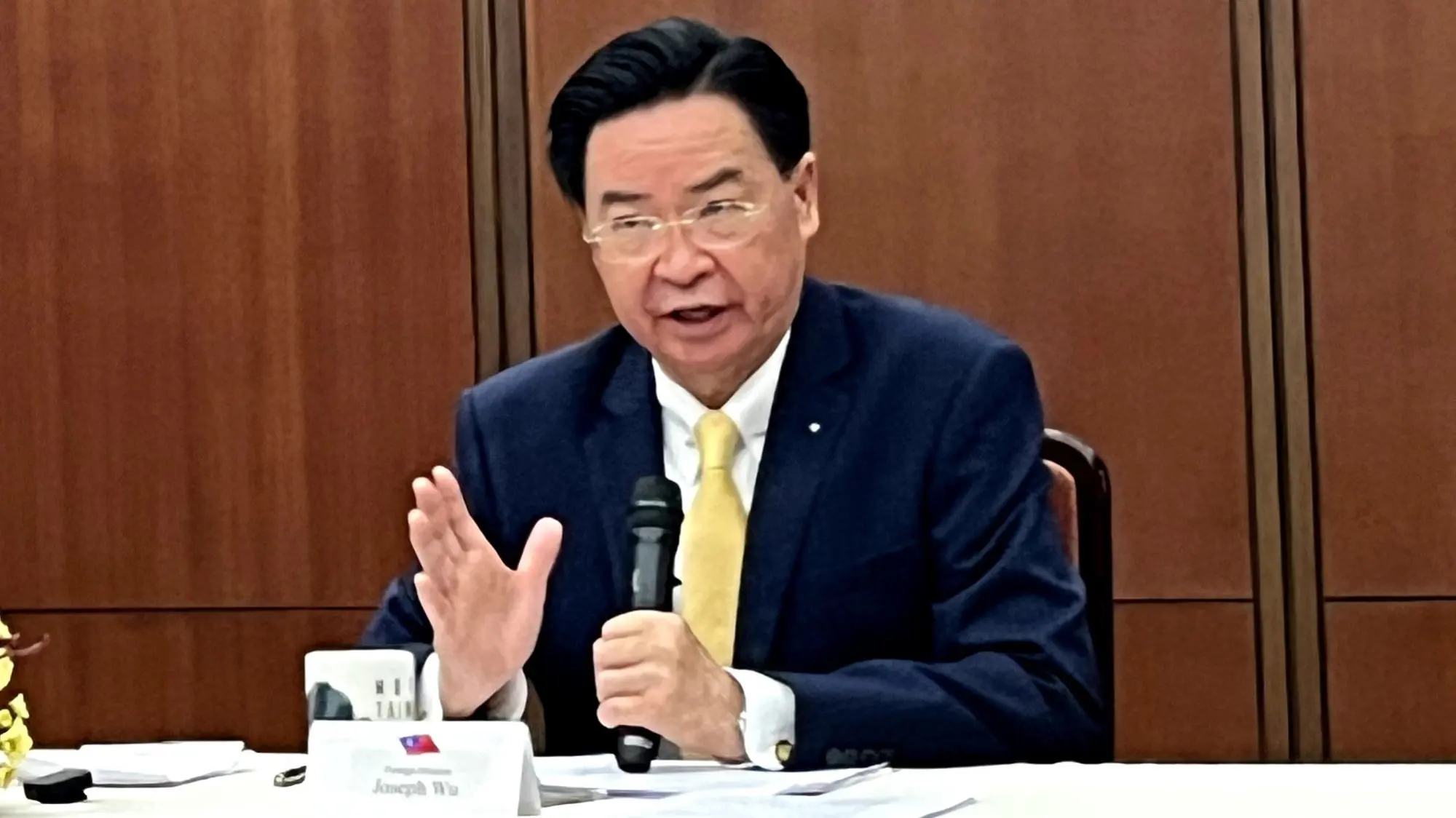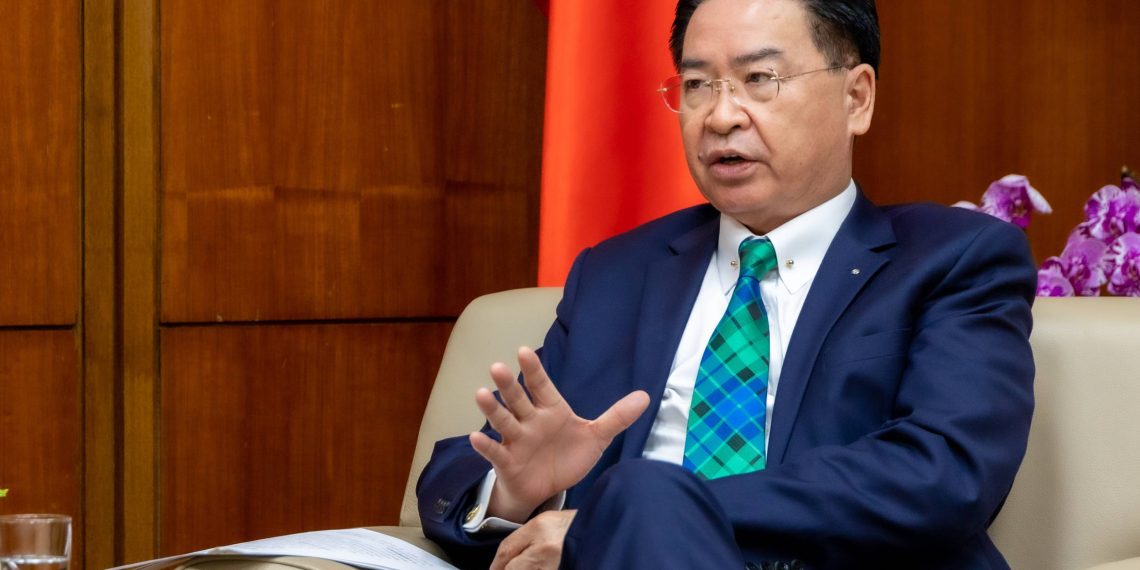Taiwan’s Foreign Minister Joseph Wu acknowledged the challenges Taiwan faces in attending this year’s World Health Organization (WHO) annual assembly, following a push from the United States for Taiwan’s inclusion.
China‘s longstanding objections have barred Taiwan from participating in international organizations, citing it as part of its territory.
Taiwan’s observer status at the WHO’s World Health Assembly ended in 2017 after President Tsai Ing-wen assumed office, triggering diplomatic tensions with China.

Despite U.S. support, Taiwan encounters obstacles in attending the upcoming WHA, coinciding with the inauguration of Taiwan’s president-elect, Lai Ching-te, whom China opposes.
Taiwan’s exclusion from the WHA hampers its efforts to combat the COVID-19 pandemic despite its involvement in certain technical WHO meetings.
The U.S. emphasized Taiwan’s important role in global health cooperation, urging the WHO to reinstate Taiwan’s invitation.
China’s foreign ministry and the WHO have yet to comment on the matter. China’s escalating diplomatic and military pressure aims to assert its sovereignty over Taiwan.
Taiwan asserts its right to self-determination, rejecting China’s claims and emphasizing that only its 23 million citizens can decide its future.
The U.S. statement underscores the importance of Taiwan’s participation in global health discussions for inclusive cooperation.

Taiwan’s predicament highlights the complex diplomatic dynamics in the region, with China’s objections impeding Taiwan’s international engagement.
Despite these challenges, Taiwan continues to seek support from other nations to bolster its presence on the global stage.
The outcome of Taiwan’s efforts to attend the WHA remains uncertain, pending responses from key stakeholders and facing diplomatic hurdles.




